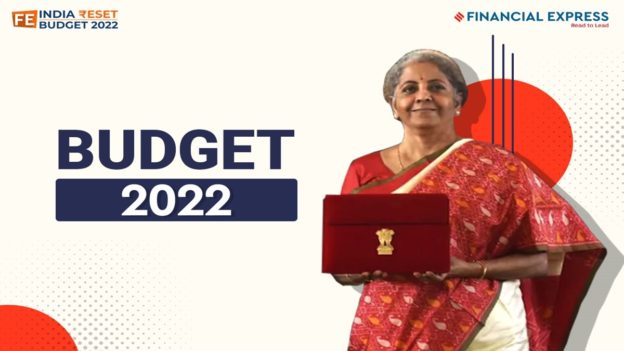Budget FY23 seeks to substantially improve the infrastructure playing field for the private sector
Economists recommend one of these two measures to revive an economy: put money directly in the hands of the consuming public (decrease taxes, increase subsidies, transfer cash benefits directly et al) or create demand and jobs by substantial capital expenditure on public works and infrastructure. The accompanying table clearly shows the path India has chosen. The last three years have seen remarkable clarity and consistency in high outlays compared to a somewhat erratic approach earlier. The NDA government, under PM Modi, has quadrupled the infrastructure outlay over the last eight years, highlighting that public-capex-push is India’s chosen path to revival post the pandemic.
While commentators have gushed over the ‘booster-shot’ and ‘turbo-charging’ nature of the 35% increase in outlay this year, a deeper analysis of the budget announcements reveals how the government has tried to make the infra ecosystem easier for the private sector.
The semi-revolutionary set of reforms in public procurement of works contracts has drawn maximum appreciation from the private sector. On October 29, 2021, the finance ministry’s department of expenditure issued a seemingly bland notification titled “General Instructions on Procurement and Project Management.” This 22-page note sets out far-reaching changes in government purchases of works-contracts and services. Unlike many recent reforms, this was not accompanied by high-decibel political announcements, but discreetly issued.

The finance minister (FM) mentioning this in her budget speech now turns the spotlight on this major reform. This is what she said in Para 78: “Government rules have recently been modernised for the needs of Amrit Kaal. The new rules have benefitted from inputs from various stakeholders. The modernised rules allow use of transparent quality criteria besides cost in evaluation of complex tenders. Provisions have been made for payment of 75% of running bills, mandatorily within 10 days and for encouraging settlement of disputes through conciliation. As a further step to enhance transparency and to reduce delays in payments, a completely paperless, end-to-end online e-Bill System will be launched for use by all central ministries for their procurements. The system will enable the suppliers and contractors to submit online their digitally signed bills and claims and track their status from anywhere.”
The October notification and the FM’s announcement has set the cat among the pigeons in central government procurement agencies, as the new provisions are effective October 29, 2021 (when they were incorporated into the General Financial Rules of the government of India), and adherence is now auditable by CAG.
Further, the government has now admitted that PPP frameworks need resetting. The FM said in her budget speech, “Measures will be taken to enhance financial viability of projects including PPP, with technical and knowledge assistance from multi-lateral agencies. Enhancing financial viability shall also be obtained by adopting global best practices, innovative ways of financing, and balanced risk allocation.” This is welcome. The last time that this government had officially recognised the need to reset PPP was in Arun Jaitley’s maiden budget where he had proposed the setting up of an institution called 3P India and allocated a whopping `500 crore for it! Radio silence thereafter.
A recent RBI report had made adverse comments on the state of municipal finances in the country. There was an expectation that this budget would invoke a large municipal bonds market. That did not happen; but what was announced can be described as getting the ‘conditions precedent’ right for a frontal attack on municipal bonds, maybe 2-3 years down the line. To this end, the FM announced, “A high-level committee of reputed urban planners, urban economists and institutions will be formed to make recommendations on urban sector policies, capacity building, planning, implementation and governance.” Municipal bonds, and the reforms and financial discipline these will force upon ULBs, are expected to usher in a surge of private capital in urban infrastructure development; Rs 250 crore has been provided for five existing academic institutions in different regions to emerge as “centres of excellence” for imparting training and education in urban management issues.
Getting bank guarantees from commercial banks have been a major headache for EPC contractors. This is what the FM had to say: “To reduce indirect cost for suppliers and work-contractors, the use of Surety Bonds as a substitute for Bank Guarantees will be made acceptable in government procurements. IRDAI has given the framework for issue of Surety Bonds by insurance companies.”
An international arbitration centre is to be set up in the GIFT City for timely settlement of disputes under international jurisprudence. This should see significant reduction in process time and legal fees.
Finally, the elephant-in-the-room for infra financing is the green-flagging of operations of NaBFID (National Bank for Infrastructure and Development), announced in last year’s budget. With a Rs 25,000-crore starting equity corpus, NaBFID is expected to ramp-up to a disbursement capability of Rs 3-5 lakh crore in the medium-term. With all this, the private sector can again look forward to being a motivated and enthusiastic partner.
https://www.financialexpress.com/opinion/beyond-the-high-outlays-for-infra/2425350/





